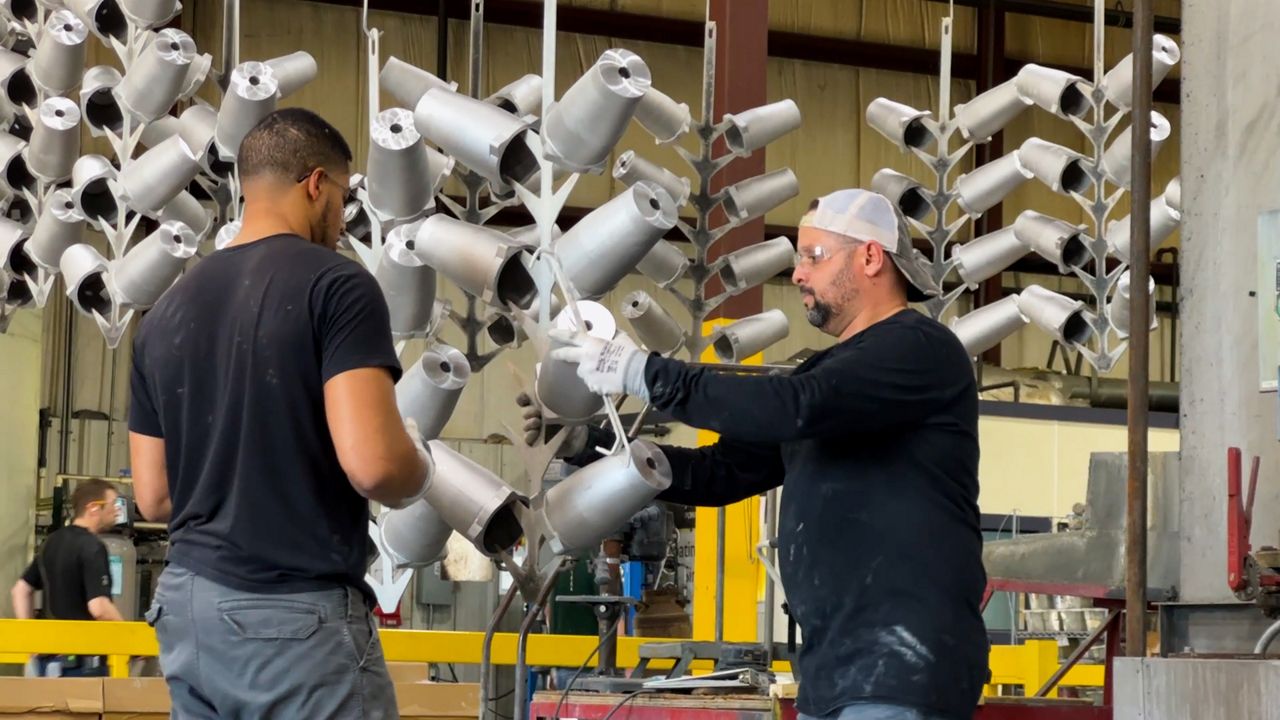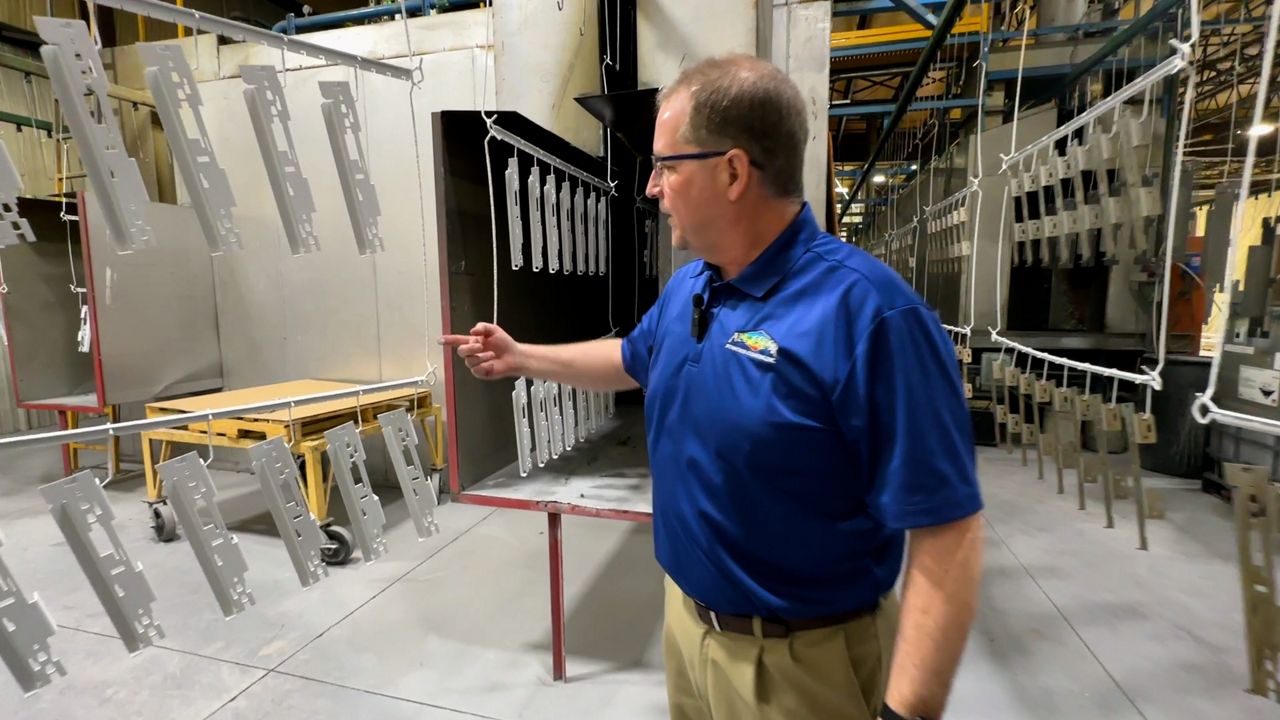OREGON, Wis. — As work continues to craft the next state budget, manufacturers across Wisconsin hope a tax credit they depend on doesn’t disappear.
The Manufacturing and Agriculture Credit (MAC) passed the Legislature in 2011 as part of the budget package. However, some companies worry Gov. Tony Evers’ spending plan would basically repeal their portion of that tax credit, causing a $650 million tax increase on businesses across the state.
Similar to most businesses, Mark Mortensen started small. His Oregon-based powder coating company had used equipment from a body shop when it opened in 1996.
“When there’s talk about eliminating the MAC, or tax credit, a lot of that background noise is that money is going into the pockets of business owners, which just isn’t correct,” Mortensen, who serves as president of All-Color Powder Coating, explained.

Now with 65 employees and more than 80,000 square feet of factory, Mortensen has tried to stay competitive not just with his product, but with his people too.
“Over the years, we’ve used the [MAC] to increase wages, to hire additional people,” Mortensen said. “We’ve bought new equipment and invested in new equipment to make us more competitive.”
The way Mortensen sees it, reducing or repealing the credit amounts to raising taxes, which doesn’t make sense to him when there’s such a large projected surplus.

“When we get something like that, we’re using it to make us more competitive, to make us better, to make us more efficient, and or to give back to the people that are working for us because, without those people, there is no business,” Mortensen said.
According to the state’s Legislative Fiscal Bureau, 77% of the companies that received the credit earned less than $1 million annually.


